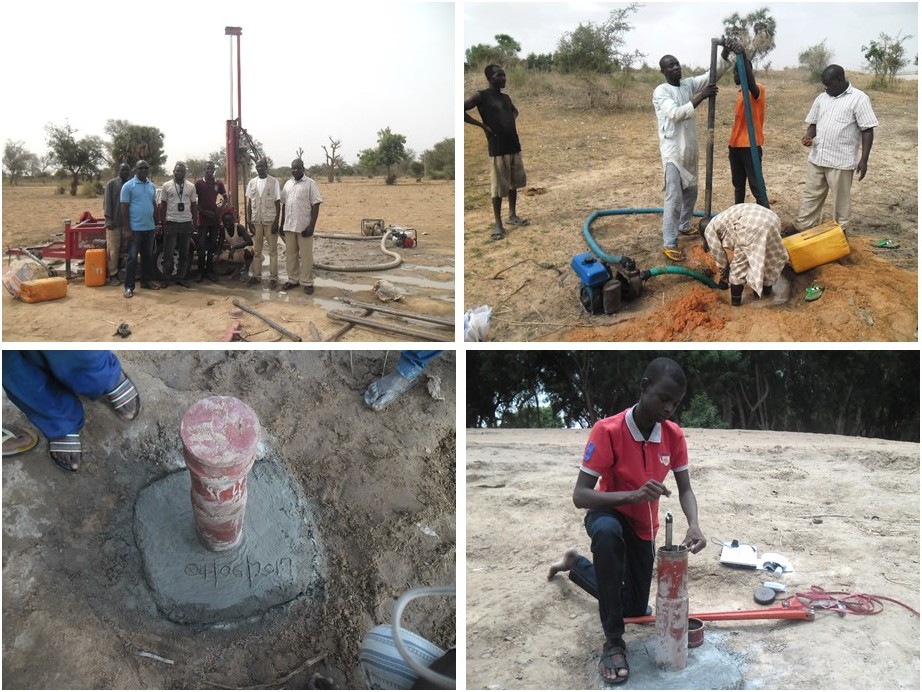
GroFutures team of the Iullemmeden Basin Observatory from Niger and Nigeria is supervising drilling and construction of piezometers adjacent to the Jibia Dam and the River Goulbi de Maradi in Nigeria.
The GroFutures team from Université Abdou Moumouni de Niamey (Niger) and University of Maiduguri (Nigeria), with support from Maradi University staff and the Regional Hydraulics authorities, has conducted joint field work exercises to establish a transboundary observatory that involves detailed monitoring of shallow groundwater and river discharge on both side of the border within the River Goulbi de Maradi Basin in northern Nigeria and south-central Niger. Shallow groundwater within alluvial deposits on both sides of the border is used not only for domestic water supplies but also irrigated agriculture.
Upstream around the Jibia Town in northern Nigeria, 2 shallow (<10 m in depth) monitoring wells have been installed adjacent to the Jibia Dam and the unregulated River Goulbi de Maradi. Each monitoring well is equipped with an automated datalogger recording hourly groundwater levels.
Downstream towards in Maradi City in south-central Niger, 8 shallow boreholes ranging from 9 to 25 m in depth have been constructed and similarly equipped with automated dataloggers enabling hourly monitoring of groundwater levels. This monitoring well network includes two transects of 3 wells perpendicular to the river within an area where groundwater is pumped intensively for irrigated agriculture (>700 ha). In addition, the team rehabilitated 2 river gauging stations upstream and downstream of Maradi city on the River Goulbi de Maradi, relaunching flow monitoring that were first installed by former French and Niger IRD technicians in the 1950s but been abandoned for more than 10 years. This combined monitoring of groundwater and surface water is now integrated into Niger’s national hydrometric network with these efforts particularly appreciated by GroFutures partners at the Niger Ministry of Water Resources.